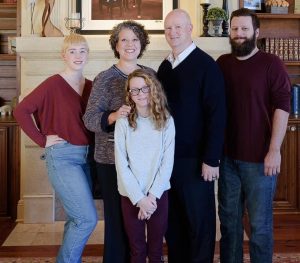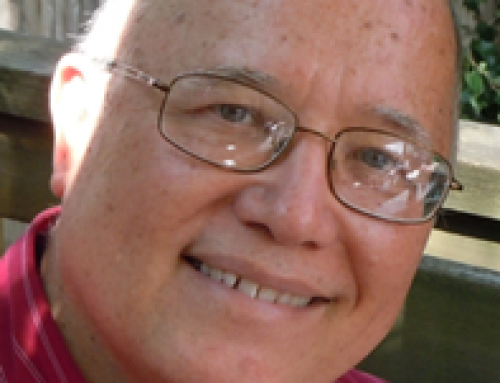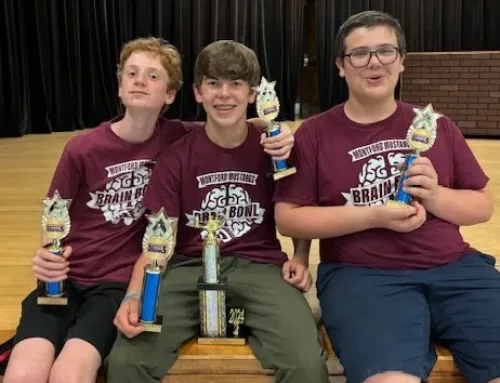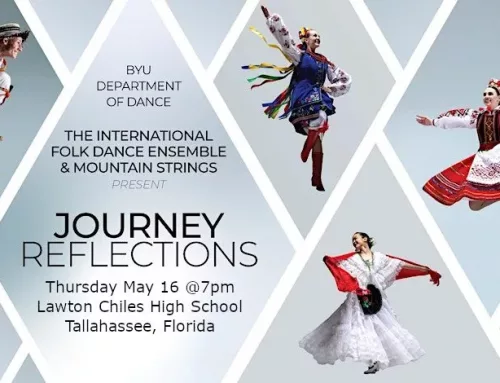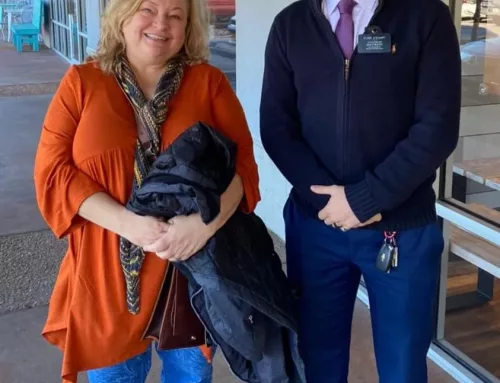Estimated reading time: 4 minutes
Earlier this year, Todd Queen joined the faculty at Florida State University as the new dean of the College of Music.
Queen, a member of The Church of Jesus Christ of Latter-day Saints, was previously dean of the Louisiana State University College of Music & Dramatic Arts. He was attracted to FSU, he said, because of the comprehensive degree programs it offers—music education, music history, theory, composition, performance, music therapy, commercial music, and arts administration—and because he felt it was in the Lord’s plan for him and his family.
“My journey to Tallahassee was led by the Lord,” Queen said. “I loved my time at LSU, but it was time for a change for our family. We were looking for a city with a larger LDS community, and this was the right situation for us.”
Noting that he and his family had previously enjoyed living in Fort Collins, Colorado (where he served as professor of voice and chair of the Department of Music, Theatre, and Dance in the College of Liberal Arts at Colorado State University), Queen said Tallahassee strikes him as “a southern version of Fort Collins,” with its bike trails, attractive restaurants, and sports and cultural activities.
The first time Queen visited Tallahassee, he attended the sacrament meeting (worship service) of the Tallahassee Third Ward (one of seven local LDS congregations), noting the substantial number of young women in the ward. “We have one daughter at home,” he said, “and it’s important for her to have young women associates.”
Most congregations in The Church of Jesus Christ of Latter-day Saints (excluding single adult and non-English speaking ones) are organized by geographical boundaries. In deciding which congregation to move into, Third Ward was a frontrunner due to the strong young women’s group. But what clinched the matter, Queen said with a chuckle, was walking in that Sunday and hearing outstanding music. “Marvin Goldstein on piano and Mark Newman on cello were playing the prelude music the first Sunday I visited, and I thought, ‘This is the place for us!’”
Queen grew up singing in Church and playing piano and saxophone. He started school at Brigham Young University in Provo, Utah with a double major in saxophone and voice. “I loved BYU and realized I wanted to be a college teacher,” he said. “Then I went to my first opera, a BYU production of ‘Carmen,’ and decided I wanted to major in vocal performance.”
That path has led to remarkable accomplishments. During his career, Queen has sung with prominent universities throughout the world and has produced and directed over 60 opera and musical theatre productions. He also co-founded, in 2011, Opera Orvieto (in Orvieto, Italy), which later merged with Operafestival di Roma, of which he is still executive director. He travels between Rome and Orvieto each summer, dedicated to providing a superior musical education together with a “small Italian village experience” for students.
One of Queen’s favorite subjects is discussing the many ways to make a living in the arts. “The starving artist is a myth,” he stated. “SNAAP statistics indicate that artists are among the happiest of workers.”
The group he referred to, SNAAP, is the Strategic National Arts Alumni Project. Begun in 2008 and based at Indiana University, it surveys people with degrees in the arts to measure for employment success and satisfaction.
“People can work in the music industry in a number of ways,” Queen said, mentioning a breadth of possibilities from teaching and composing to production and performance. “The skills you learn as an artist are varied and useful—flexible thinking, collaboration, discipline, performance under pressure. You learn to work at a high level of accuracy and to perform to a high standard.”
Beyond all these advantages, Queen described the more intangible—and even more rewarding—benefits of musical endeavor.
“I like what Hans Christian Andersen said: ‘Where words fail, music speaks.’ Music invites the Spirit and speaks to us in ways that are profound.” In fact, Queen concluded, “the most meaningful moments of our lives have music as an important part of them. Music brings us together.”


